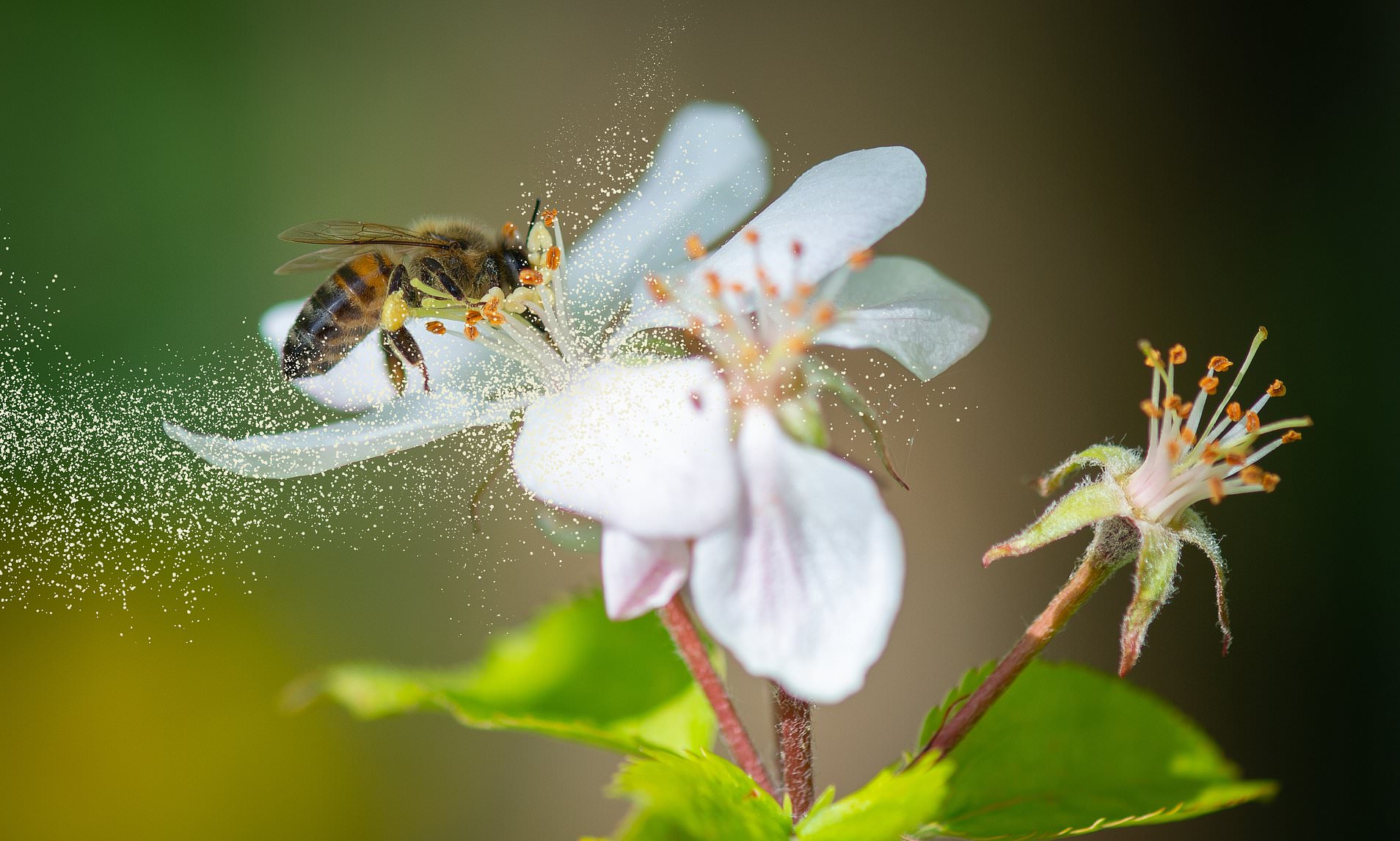
GARDENERS WHO USE PESTICIDES LESS HAPPY THAN WHO USE ECO-FRIENDLY
It might be tempting to blitz your grass with weedkillers and pesticides for a perfect lawn.
But gardeners who do this are less happy than those who are more friendly towards the environment.
Research by the Royal Horticultural Society indicates that weeding by hand brought higher levels of wellbeing.
The same benefit also came from encouraging wildlife into their gardens, with actions such as growing plants for bees, said the study of more than 2,000 householders.
The research, published to coincide with the launch of the RHS Hampton Court Garden Festival which runs from today until Sunday, involved more than 2,000 people being asked about their gardening habits.
More than four in five (83 per cent) of those that gardened considered it positive for their overall health and wellbeing, with the greatest benefits perceived for mental health followed by physical and social health.
Individuals who said they actively supported wildlife or limited their environmental footprint perceived higher overall health and wellbeing benefits from gardening.
Among the most common activities they cited were avoiding the use of pesticides (62 per cent), growing plants for bees and other pollinators (58 per cent), and watering with rainwater or 'greywater' (43.8 per cent) – water left over from washing up, showering or baths.
The authors suggest that nature-friendly gardeners have a 'less stressful gardening experience by working with rather than against nature' adding that they have 'more opportunity for reflection and restoration through the experience of greater connectedness with the natural world'.
Study author Chloe Sutcliffe, who is an RHS Sustainability Fellow, said: 'Identifying a link between sustainable practices and perceived wellbeing in garden contexts was a welcome surprise for the research team.
'It makes sense that making more sustainable choices is likely to benefit our wellbeing in the longer term, but it seems that doing so can directly benefit our wellbeing in the here and now too, something that policy makers and health professionals might tap into in order to deliver improved climate, biodiversity and human health outcomes'.
Ideas for more sustainable gardening at the Hampton Court spectacle include the Peat-Free garden, which demonstrates how to garden without using peat.
Others include a Money Saving Garden which showcases how gardeners can grow plants from cuttings, helping them to preserve their finances.
Read more 2024-07-01T23:43:24Z dg43tfdfdgfd